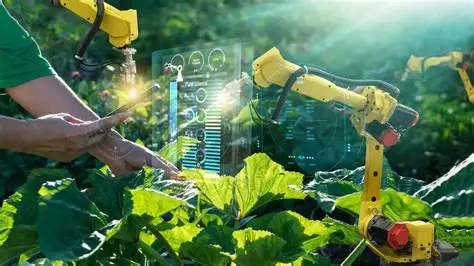
For many working in the farming community, keeping up with ever-changing rules can feel like trying to plough a field during a thunderstorm — possible, but messy. From land management to environmental responsibilities, farmers today face a maze of regulations that seem to shift with every new government policy.
Fortunately, help is on the horizon — and it doesn’t always wear a suit. Artificial intelligence (AI), once thought of as a purely high-tech or industrial tool, is now revolutionising the way the agricultural sector understands and applies legal compliance. From simplifying paperwork to predicting new legislative trends, AI is proving to be an invaluable ally for the modern farmer.
What’s more, if you’re in the West Midlands, you can gain legal clarity or support from agricultural solicitors in Stafford.

Image credit: Unsplash
Why Legal Compliance Is So Complex for Farmers
The UK agricultural industry operates within a dense web of laws. From the Agriculture Act 2020 and environmental protection standards to new subsidy schemes under the Environmental Land Management (ELM) framework, farmers must remain constantly vigilant.
For many, this means hours spent on admin, interpreting guidance, and ensuring their business practices align with evolving legislation. The challenge is especially tough for smaller, family-run farms that lack the time or resources to constantly monitor updates.
AI tools are helping to ease that burden by translating legal jargon into clear, actionable information — saving farmers both time and stress.
- Decoding Complex Legislation in Seconds
AI-powered platforms can analyse hundreds of pages of agricultural legislation in a matter of moments. By breaking down the text into simpler, structured summaries, farmers can quickly understand what applies to them and what doesn’t.
For example, if a new pesticide rule comes into effect, AI systems can flag the relevant sections and summarise the impact on specific crops or regions. This means less confusion and fewer sleepless nights wondering whether you’re meeting your compliance obligations.
According to DEFRA’s innovation strategy, automation and AI are key to helping rural businesses keep up with regulatory change — and their role is only set to grow.
- Helping Farmers Stay on the Right Side of Environmental Law
Environmental regulation is one of the trickiest areas for agricultural compliance. Rules surrounding nitrate levels, waste management, and water protection are detailed and frequently updated.
AI-driven compliance software can now monitor environmental data — such as soil nutrient levels or waste outputs — and automatically alert farmers to potential breaches. This early warning system helps prevent fines and supports more sustainable farming practices.
Not only does this protect the environment, but it also supports farmers in maintaining a positive relationship with regulatory bodies, which can make future grant applications smoother and more successful.
- Streamlining Grant and Subsidy Applications
Applying for grants or subsidies under schemes like the Sustainable Farming Incentive (SFI) often involves mountains of paperwork. Missing a single form or misunderstanding eligibility rules can mean losing valuable funding.
AI can take much of the pain out of this process. Modern systems can pre-fill forms, check for missing data, and even cross-reference application details with eligibility criteria. This speeds up the process and reduces the risk of costly errors.
If you’re planning to apply for funding, the Rural Payments Agency provides clear official guidance on eligibility and deadlines — but combining that information with AI-driven tools can make the process far less daunting.
- Predicting Future Legal Changes
One of AI’s greatest strengths lies in prediction. By analysing policy trends and government consultations, AI systems can forecast likely changes to agricultural law before they happen.
For example, if new data suggests a tightening of water use regulations, AI platforms can flag this trend early, allowing farmers to adapt before the new rules are even finalised. This kind of proactive preparation helps farms stay one step ahead — a luxury rarely afforded in such a fast-moving regulatory environment.
- Supporting Animal Welfare Compliance
AI is also lending a hand in ensuring compliance with animal welfare laws. Through sensors and smart monitoring systems, farmers can track livestock behaviour, temperature, and feed quality, helping them meet welfare standards automatically.
In fact, some systems now generate alerts if an animal’s activity drops suddenly or a pen exceeds safe capacity levels. These insights not only keep farms compliant but also improve the health and productivity of the animals themselves — a win for both ethics and economics.
For further reading on welfare obligations, view the GOV.UK animal welfare guidance for livestock to ensure your practices meet the current legal standards.
Image credit: Unsplash
- Managing Data Privacy and Security
While AI brings immense advantages, it also raises questions about data protection — especially when systems store information on livestock movements, pesticide use, and land ownership. Farmers must ensure that their digital tools comply with data protection laws such as the UK GDPR.
Fortunately, most modern AI systems used in agriculture are designed with data security in mind. By choosing reputable providers and ensuring you understand who owns the data collected, farmers can harness the benefits of technology without compromising privacy.
- Making Legal Support More Accessible
One of the most significant developments AI offers is improved access to legal advice. Virtual assistants and chatbots powered by AI can provide farmers with instant, jargon-free answers to common legal questions — from tenancy agreements to diversification rules.
These systems don’t replace the expertise of solicitors, but they act as a bridge between the farmer and their legal team, saving time and ensuring that small issues don’t become major problems. When complex matters arise, farmers can then approach their solicitor with a clearer understanding of the situation.
A More Efficient Future for Agriculture
AI is often seen as futuristic, but in many British farms, it’s already here — quietly transforming how agricultural businesses interact with the law. From real-time compliance checks to grant applications and predictive insights, AI is reshaping the relationship between farming and legislation for the better.
For farmers who have spent years feeling overwhelmed by complex rules and endless forms, this technology offers something invaluable: peace of mind.
Legal Disclaimer
This article is for general information purposes only and does not constitute legal advice. Agricultural law and compliance requirements can vary depending on individual circumstances and regional regulations. Farmers or landowners should seek independent legal guidance from a qualified solicitor experienced in agricultural and rural affairs before making any business or compliance decisions.






